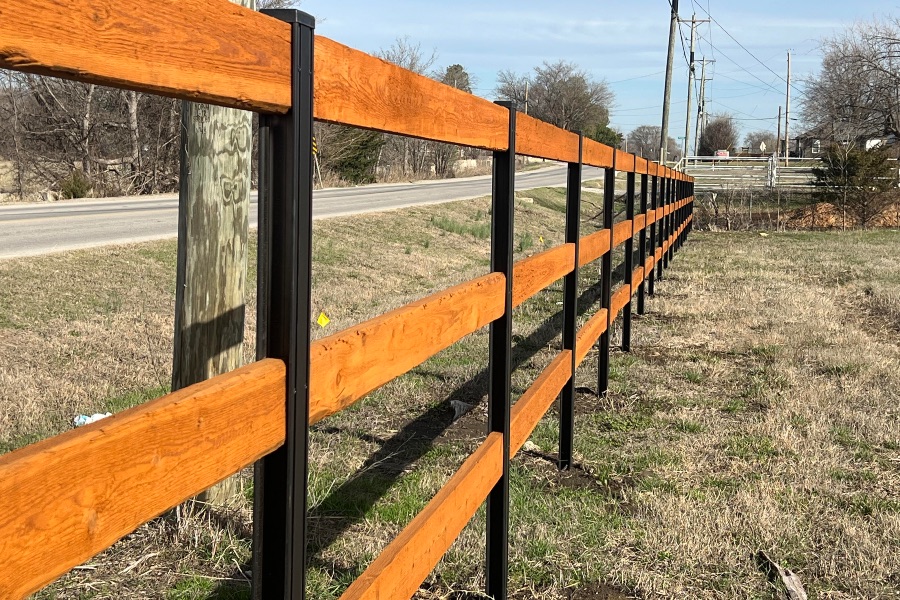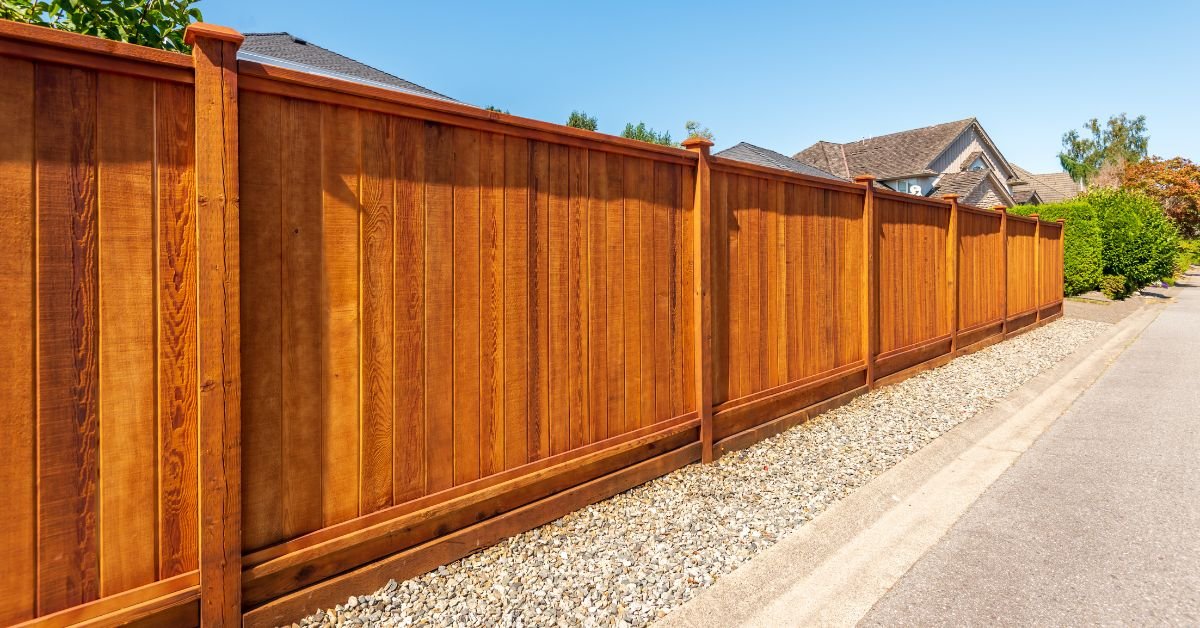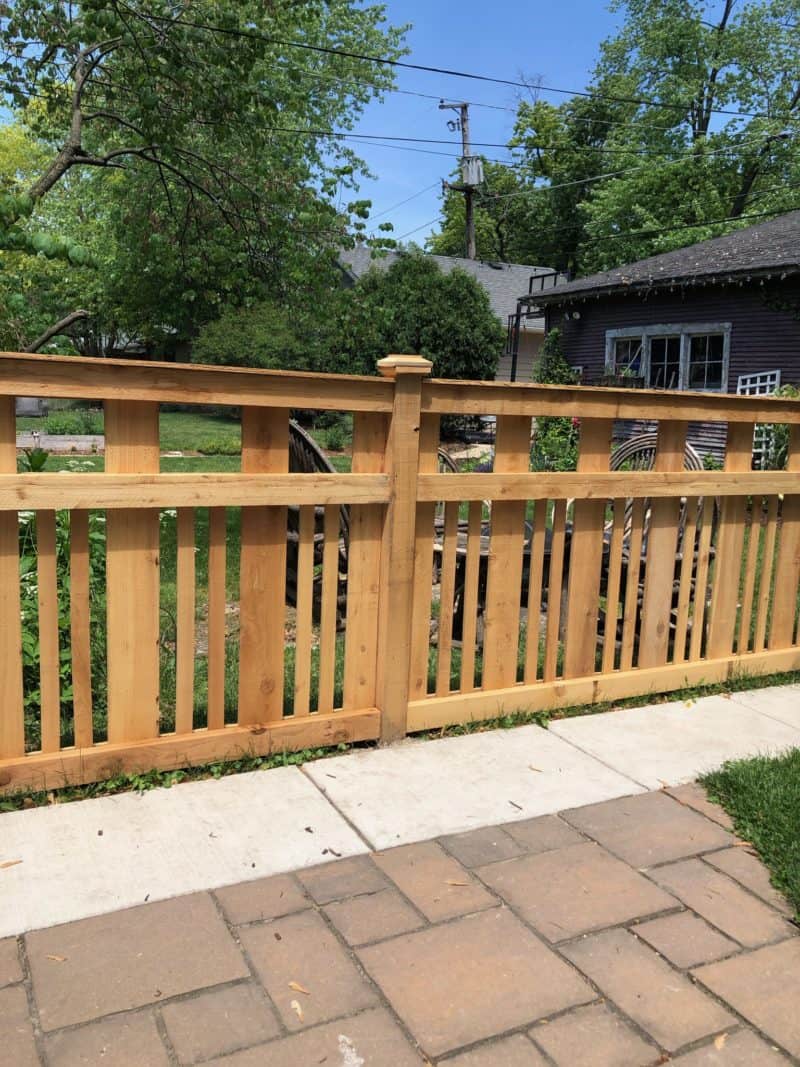All Categories
Featured

When it pertains to picking the appropriate fencing product for your building, vinyl, wood, and light weight aluminum are amongst the most prominent alternatives. Each material supplies distinct benefits that fit different needs, preferences, and spending plans. Understanding the benefits and drawbacks of each kind can help you make a notified choice based upon your concerns, whether that's aesthetic appeal, durability, or upkeep needs. Listed below, we damage down the advantages and negative aspects of these 3 usual fence products.
Timber Secure Fencing. Pros:
Aesthetic Appeal: Wood fencings supply a natural, traditional appearance that complements most kinds of landscaping and style. They can be conveniently customized with paint or discolor, offering you the liberty to create the ideal color and finish for your building. Flexibility: Timber can be utilized to create a range of fencing styles, from typical picket fences to extra modern layouts like personal privacy fences or rustic ranch-style fencings. If your requirements transform, it's very easy to add or change to over time. Cost: Wood is normally more economical than plastic or aluminum, making it an appealing choice for house owners on a budget plan. The preliminary expense of a timber fencing is generally reduced than the various other materials. Disadvantages:

Maintenance Needs: Timber fences need routine upkeep, including discoloration, sealing, or painting to shield them from weathering, rot, and bug damage. Without proper care, timber can weaken quickly. Durability: Timber is vulnerable to harm from bugs like termites, and it can warp, split, or split in time because of direct exposure to the aspects. In locations with severe weather conditions, wood may require to be replaced a lot more frequently than various other products. Restricted Life expectancy: While wood fencings can last for lots of years with proper treatment, they typically have a shorter lifespan than vinyl or light weight aluminum fences. Plastic Fencing. Pros:
Reduced Maintenance: Among the biggest benefits of vinyl fencing is its reduced upkeep needs. Unlike timber, vinyl does not require to be painted, discolored, or sealed. It's resistant to fading, fracturing, or bending, making it optimal for house owners that want an easy fencing. Durability: Plastic fencings are resistant and extremely long lasting to the aspects, including UV rays, rain, and humidity. They're additionally unsusceptible insects, such as termites, that can harm wood fences. Selection of Styles: Plastic fencings can be found in a vast array of colors and styles, and numerous simulate the look of wood without the maintenance downsides. You can choose from privacy fencings, picket fences, and even more to suit your needs. Long Lifespan: With appropriate care, plastic fencings can last decades, far longer than timber fencings, and they feature service warranties that supply tranquility of mind. Cons:
Higher Preliminary Price: While vinyl fencings can save cash on maintenance for many years, they often tend to have a higher upfront price than timber fences, which may be a deterrent for some purchasers. Restricted Personalization: While vinyl fencings are offered in a range of shades and designs, they lack the modification flexibility that timber supplies. You're limited to the pre-designed panels available, which could not match every unique aesthetic. Possible for Cracking in Cold Climates: In severe chilly temperature levels, vinyl fencings can end up being brittle and may break under influence, making them less suitable for locations with freezing winter seasons. Aluminum Secure fencing. Pros:
Durability and Strength: Light weight aluminum is a light-weight yet strong material that stands up to rust and rust, making it perfect for seaside areas or locations with high humidity. Aluminum fences call for very little upkeep and can withstand the elements for several years. Aesthetic Allure: Aluminum fences provide a sleek, modern-day look. They come in a variety of decorative designs and can be made use of to produce a more modern or stylish search for your residential property. Reduced Maintenance: Aluminum fencings don't call for painting or sealing, and they're resistant to rust and deterioration, making them unbelievably low upkeep with time. Protection: Light weight aluminum fences supply a greater level of protection contrasted to vinyl or timber fencings since of their durable building. They can be equipped with locks and gates to give a safe border around your property. Disadvantages:

Cost: Aluminum fences are typically extra costly than timber or plastic fencings, both in terms of products and setup expenses. This greater cost factor can be a downside for budget-conscious home owners. Less Personal privacy: Light weight aluminum fences typically have a more open layout, with pickets spaced apart to enable exposure with the fence. This may not be the ideal option for your home if privacy is a concern. Prone to Denting: While light weight aluminum is rust-resistant, it can still be nicked or curved if struck with force, such as by a car or hefty devices. While it won't corrosion, it might not retain its excellent appearance if it gets harmed. Which Material is Right for You? Choosing the very best fence product depends upon your specific needs, budget, and lasting plans for your residential property. If you value visual customization and are prepared to maintain it frequently, wood may be your finest choice. If you choose low-maintenance longevity and want to invest a bit more upfront, vinyl might be the excellent solution. On the various other hand, if you require a durable, safe and secure fencing with a sleek appearance, aluminum may be the ideal product for you.
Eventually, consider your climate, maintenance choices, and visual desires when picking your fence material. Each choice has its strengths and weaknesses, yet with the right care and installment, all three can give attractive and reliable limits for your property.
Latest Posts
Explore Auto Services & More: Comprehensive Repair Options from Montclare Auto Repair
Published May 26, 25
1 min read
Learn About Oil Changes & More: Comprehensive Repair Options from Montclare Auto Repair
Published May 25, 25
1 min read
Reliable Industrial Roof Providers by Weathercraft
Published May 24, 25
1 min read
More
Latest Posts
Explore Auto Services & More: Comprehensive Repair Options from Montclare Auto Repair
Published May 26, 25
1 min read
Learn About Oil Changes & More: Comprehensive Repair Options from Montclare Auto Repair
Published May 25, 25
1 min read
Reliable Industrial Roof Providers by Weathercraft
Published May 24, 25
1 min read